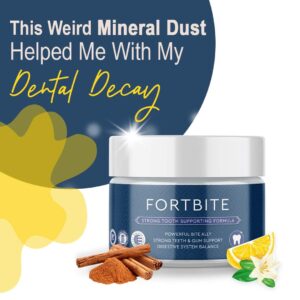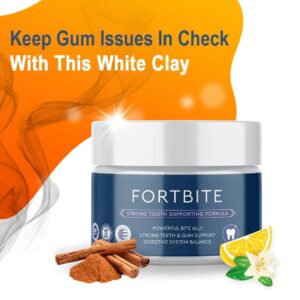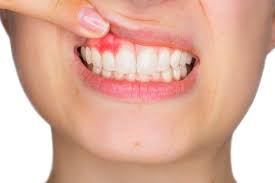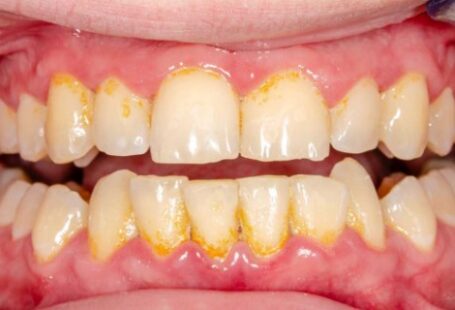Assure the longevity of your family’s teeth
Your teeth are the best tool you have for helping you carry out daily tasks including eating, speaking, and expressing your emotions through facial expressions. You must maintain your family’s oral health and ensure that your family’s teeth endure a lifetime by going to the dentist every six months; otherwise, you run the danger of having oral health issues that might harm both the function of your teeth and the health of your entire body.
Even though social segregation laws have prevented thousands of families from receiving dental care, you can safeguard your family’s oral health at home by making a few small changes to your daily routine. That way, your family’s teeth will be in good shape when you can schedule an appointment with Dr. Lang for your next evaluation. Here are 10 methods for maintaining your family’s oral health without access to a dentist.
- Floss your teeth properly.
Maintaining your oral health at home requires brushing your teeth for two minutes at least twice a day, but how you do it is just as important. Use a soft-bristled or electronic toothbrush to avoid damaging your tooth enamel because brushing your teeth too vigorously can wear down your enamel over time and cause problems like tooth sensitivity. Using fluoride toothpaste that prevents cavities and strengthens teeth, you and your family should brush your teeth as well as your tongue, which, like your teeth, accumulates a layer of plaque that has to be removed. - Treat brushing and flossing equally.
By breaking up the plaque that builds up at your gumline and cleaning the sides of your teeth, flossing accomplishes tasks that your toothbrush is unable to do. If the plaque in these locations isn’t cleaned, you can get cavities or gum disease, which, despite frequently being painless, can cause tooth loss. Because of this, flossing is just as crucial to your dental health as brushing your teeth. As a result, your family should make a commitment to floss at least once each day. - Maintain a strict oral hygiene regimen.
Your overall health is affected by your oral health, which affects more than just your mouth. In the short and long term, having a bad mouth can cause a variety of issues throughout your body, including immune system deterioration, infections, and an increased risk of heart disease, stroke, and other illnesses. On the other side, keeping your mouth healthy can boost your immune system and keep you healthy all year round. Therefore, avoid skipping or rushing through your oral hygiene routine because you’re in a rush or exhausted at the end of the day; by making sure you and your children take just a few minutes to perform a thorough job, you can ensure that your entire family stays healthy in the long run. - Select your mouthwash carefully.
Make sure to pick a mouthwash that fights cavities or gingivitis and also freshens breath in order to boost your health. Consider switching to a total-care mouthwash if you don’t have access to dental care. By removing harmful bacteria from your mouth, strengthening your teeth, avoiding cavities, and renewing your enamel, this sort of mouthwash takes care of all the bases. The ADA Seal of Acceptance is placed on mouthwashes that have been shown to improve oral health; you can also see the list of ADA-approved mouthwashes online. - Adhere to a balanced diet.
Sugary and starchy foods, which the bacteria in your mouth readily break down into sugars, are bad for your teeth when consumed on a regular basis because they feed the bacteria in your mouth, which produce acid that eats away at your enamel in the process. Acidic and sugary drinks are also detrimental to your teeth for this reason. Limiting these meals and beverages enhances the overall and oral health of your family, which is crucial when you don’t have access to dental care. Instead, make an effort to consume a balanced diet rich in whole grains, dairy products, lean proteins, and lots of fruits and vegetables. This lessens the damaging effects of sugar on your teeth and gives your body the vitamins and minerals it needs to develop strong, healthy teeth and bones. - Consume fewer snacks and a lot more water.
The likelihood that you’ll develop cavities rises if you consume a lot of small snacks or sweet beverages throughout the day, which provides the bacteria in your mouth with an unlimited smorgasbord of food. It’s not necessary for your family to eat less; instead, having a few larger snacks rather than many smaller ones and sipping water in between meals can help your family’s dental health by allowing the mouth’s acidity levels to recover to normal. - Begin a regular exercise regimen.
Exercise benefits your general health, but there is growing evidence that it also benefits your oral health. Studies have shown that people who are physically active have a lower risk of developing periodontitis; given that both periodontitis and being overweight increase your risk of heart attack and stroke, finding a regular exercise routine that works for you can be beneficial for both your overall health and oral health. You may even schedule family workout sessions during days off from school! - Make an effort to break bad habits that affect your dental health.
Any use of tobacco can be harmful to your oral health; it makes you more susceptible to gum disease, hinders healing, colours your teeth permanently, and raises your risk of oral cancer. Sharing food and beverages with your children can potentially pass on hazardous oral bacteria, so maintaining good dental health for the entire family is crucial. Since you don’t have much access to dental treatment, it could be a good time to quit smoking in order to protect your oral health. If you grind your teeth at night, which is not a conscious behaviour, you may want to break the practice to ease jaw pain and avoid dental problems. Night guards can help. - Treat your teeth gently.
Teeth are brittle but robust, so you should only use them for the tasks they were designed for. You run the danger of cracking, shattering, or chipping your teeth when you use them to open packages, crack nuts, or bite down on ice. This may be extremely painful and frequently necessitates a trip to the emergency dentist. Even if you don’t experience a dental emergency, these activities will gradually wear down your teeth, affecting how they look and possibly necessitating further dental work. - Make a commitment to healthy practices to prevent more degradation from occurring.
If you know you have a cavity but can’t receive quick treatment, make a commitment to developing good habits to stop the decay from getting worse. Inattention to your dental health can make a cavity worse and increase your risk of needing a root canal instead of a simple filling. Until you can have a filling, spend money on high-quality toothpaste and mouthwash, follow a strict dental hygiene regimen, and stop unhealthy behaviors to prevent further damage to your teeth.
Even though you might not currently have access to dental treatment, you can take efforts to enhance your oral hygiene so that Dr. Lang can give you a clean bill of health when you next visit him. You might even find that enhancing your oral health also enhances your general health, making you feel better all year round.
Which food is good for teeth?
Certain foods are beneficial for your teeth and can contribute to better oral health. Here are some foods that are good for your teeth:
- Dairy Products: Dairy foods like milk, cheese, and yogurt are rich in calcium, which is essential for strong teeth and bones. They also help balance the pH level in your mouth and reduce the risk of tooth decay.
- Leafy Greens: Foods like kale, spinach, and other leafy greens are high in fiber, which can act as a natural toothbrush. They also contain essential vitamins and minerals that promote healthy gums.
- Crunchy Fruits and Vegetables: Apples, carrots, celery, and other crunchy fruits and vegetables help clean teeth naturally. They stimulate saliva production, which aids in rinsing away food particles and bacteria.
- Lean Proteins: Foods like chicken, turkey, and lean meats are high in phosphorus, which is good for strengthening tooth enamel. They are also a good source of protein for overall health.
- Nuts and Seeds: Almonds, cashews, and sesame seeds contain nutrients like calcium, magnesium, and phosphorus that benefit teeth. Chewing them stimulates saliva, which can help reduce the risk of tooth decay.
- Water: Water is the best beverage for your oral health. It helps rinse away food particles, bacteria, and acids that can lead to tooth decay. Drinking water, especially fluoridated water, can strengthen tooth enamel.
- Green Tea: Green tea contains compounds that can reduce the growth of harmful oral bacteria. It also has anti-inflammatory properties that benefit gum health.
- Sugar-Free Gum: Chewing sugar-free gum with xylitol can help stimulate saliva production, which naturally cleanses your mouth and neutralizes acids.
- Fatty Fish: Fatty fish like salmon, mackerel, and trout are rich in vitamin D and omega-3 fatty acids, which are essential for oral health.
- Tea (Without Sugar): Unsweetened tea, whether black or herbal, can help reduce the growth of bacteria in the mouth and prevent tooth decay.
Remember that while these foods can promote better oral health, it’s equally important to practice good oral hygiene habits, such as regular brushing, flossing, and dental check-ups, to maintain healthy teeth and gums. Additionally, limiting sugary and acidic foods and beverages is crucial to prevent tooth decay.
What are 10 things to keep your teeth healthy?
Maintaining healthy teeth and gums is crucial for your overall well-being. Here are ten things you can do to keep your teeth healthy:
- Brush Regularly: Brush your teeth at least twice a day using fluoride toothpaste. Brushing helps remove plaque, a sticky film of bacteria that can lead to cavities and gum disease.
- Floss Daily: Flossing gets rid of food particles and plaque between your teeth and along the gumline. It’s essential for preventing cavities and gum disease.
- Use Mouthwash: An antimicrobial or fluoride mouthwash can help kill bacteria and strengthen tooth enamel. Rinse as directed on the product label.
- Maintain a Balanced Diet: Consume a diet rich in fruits, vegetables, lean proteins, and whole grains. Avoid excessive sugar and acidic foods, as they can contribute to tooth decay.
- Limit Sugary Snacks: Reduce your intake of sugary snacks and beverages, which can lead to cavities. If you consume them, brush your teeth afterward or rinse your mouth with water.
- Drink Water: Water helps rinse away food particles and bacteria in your mouth, reducing the risk of tooth decay. It’s especially beneficial after eating.
- Chew Sugarless Gum: Chewing sugarless gum, especially gum containing xylitol, can help stimulate saliva production, which naturally cleanses your mouth and strengthens teeth.
- Wear a Mouthguard: If you play contact sports or grind your teeth at night, consider using a mouthguard to protect your teeth from injury or damage.
- Regular Dental Check-ups: Visit your dentist for regular check-ups and professional cleanings. These appointments can help catch dental issues early and maintain oral health.
- Don’t Smoke: Smoking and using tobacco products increase the risk of gum disease, tooth decay, and oral cancer. Quitting tobacco use is essential for maintaining healthy teeth and gums.
In addition to these steps, it’s crucial to be aware of any changes in your oral health. If you experience persistent dental issues, pain, or any unusual symptoms, consult your dentist promptly. Your dentist can provide personalized guidance and treatment to help you maintain healthy teeth and gums.
Can lack of B12 affect your teeth?
Yes, a deficiency in vitamin B12 can affect your teeth and oral health. Vitamin B12 plays a crucial role in maintaining healthy teeth and gums, as well as overall oral health. Here’s how a lack of B12 can impact your oral health:
- Gum Inflammation: A deficiency in vitamin B12 can lead to gum problems such as inflammation and bleeding. Healthy gums are essential for holding teeth in place and preventing gum disease.
- Mouth Sores: Vitamin B12 deficiency may result in the development of mouth sores or ulcers, which can be painful and uncomfortable.
- Oral Sensations: Some people with a B12 deficiency report experiencing a burning or tingling sensation in their mouths. This can affect the overall comfort of your oral cavity.
- Increased Risk of Infections: A weakened immune system due to a lack of B12 can make you more susceptible to oral infections and other health issues that can affect your teeth and gums.
- Oral Sensitivity: Vitamin B12 deficiency can make your oral tissues more sensitive, increasing discomfort when eating or drinking.
To maintain good oral health and prevent these issues, it’s essential to ensure you have an adequate intake of vitamin B12 in your diet. You can obtain vitamin B12 from various dietary sources, including meat, fish, dairy products, eggs, and fortified foods like breakfast cereals. If you suspect a B12 deficiency, it’s advisable to consult with a healthcare professional who can provide guidance on dietary changes or supplements to address the deficiency and improve your overall oral health. Additionally, regular dental check-ups and maintaining good oral hygiene practices are essential for preventing oral health problems, regardless of any nutrient deficiencies.
What deficiency causes weak teeth?
Weak teeth can result from various nutritional deficiencies or other factors. Some of the key deficiencies and issues that can contribute to weak teeth include:
- Calcium Deficiency: Calcium is essential for the development and maintenance of strong teeth and bones. Inadequate calcium intake can result in weaker teeth that are more susceptible to decay and damage.
- Vitamin D Deficiency: Vitamin D helps the body absorb calcium, making it crucial for maintaining healthy teeth. A deficiency in vitamin D can lead to problems with tooth mineralization and overall oral health.
- Vitamin C Deficiency: Vitamin C plays a role in maintaining the health of your gums and soft tissues in your mouth. A deficiency can result in gum problems and weakened teeth.
- Phosphorus Deficiency: Phosphorus is another mineral that is essential for strong teeth. It works alongside calcium to build and maintain tooth enamel. A deficiency in phosphorus can lead to enamel weakening.
- Vitamin A Deficiency: Vitamin A is necessary for the development and maintenance of oral tissues. A deficiency may result in problems with gum health and tooth enamel.
- Fluoride Deficiency: Fluoride is important for strengthening tooth enamel and protecting against tooth decay. In areas where water is not fluoridated or in cases of insufficient fluoride intake, the risk of weak teeth and cavities can increase.
- Iron Deficiency: Anemia caused by iron deficiency can lead to a condition called “plummer-vinson syndrome,” which can cause oral health problems, including weakened teeth.
- Malnutrition: Overall malnutrition or an imbalanced diet that lacks essential nutrients can result in weak teeth and a higher susceptibility to oral health issues.
- Eating Disorders: Conditions like bulimia and anorexia can negatively affect oral health due to the impact on nutrient intake and oral hygiene practices.
To maintain strong teeth and overall oral health, it’s important to have a balanced diet rich in essential nutrients. Regular dental check-ups and proper oral hygiene practices (including brushing, flossing, and avoiding excessive sugar intake) are also crucial for preventing dental problems and maintaining strong teeth. If you suspect a nutritional deficiency may be contributing to your oral health issues, it’s advisable to consult with a healthcare professional or dentist for a thorough evaluation and guidance.
What are 4 ways to protect your teeth?
To protect your teeth and maintain good oral health, there are several essential practices you should incorporate into your daily routine. Here are four ways to protect your teeth:
- Maintain Good Oral Hygiene:
- Brushing: Brush your teeth at least twice a day, preferably after meals, using a fluoride toothpaste. Be thorough but gentle, and use a soft-bristle toothbrush to avoid damaging your enamel and gums.
- Flossing: Floss daily to remove food particles and plaque from between your teeth and along the gumline.
- Mouthwash: Use an antimicrobial or fluoride mouthwash to help reduce bacteria and strengthen tooth enamel.
- Tongue Cleaning: Gently clean your tongue to remove bacteria and prevent bad breath.
- Balanced Diet:
- Consume a balanced diet rich in fruits, vegetables, lean proteins, whole grains, and dairy products. Avoid excessive sugar and acidic foods and drinks that can contribute to tooth decay.
- Drink water to help rinse away food particles and maintain saliva production, which is essential for oral health.
- Regular Dental Check-ups:
- Visit your dentist for regular check-ups and professional cleanings. A dentist can detect and address dental issues early and provide guidance on oral hygiene practices.
- Protect Against Injury:
- If you play contact sports, wear a mouthguard to prevent tooth and mouth injuries.
- Avoid using your teeth as tools for opening packages or biting non-food items, as this can lead to chipping and fractures.
In addition to these practices, it’s essential to be aware of your oral health and address any concerns promptly. If you experience tooth pain, bleeding gums, or other dental issues, consult with your dentist. Preventive measures and early intervention are key to protecting your teeth and maintaining a healthy smile.






